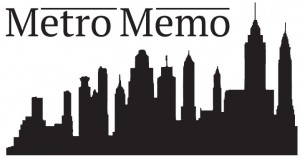 Overall, I had a happy childhood and adolescence. I had a close and supportive relationship with my parents and friends. I worked hard and did well in school, and I enjoyed my hobbies. I don’t mean to imply that my childhood was perfect. For instance, growing up with an older sister who emotionally neglected me was challenging. However, my support system and self-confidence helped me to deal with the challenges of life in a healthy way.
Overall, I had a happy childhood and adolescence. I had a close and supportive relationship with my parents and friends. I worked hard and did well in school, and I enjoyed my hobbies. I don’t mean to imply that my childhood was perfect. For instance, growing up with an older sister who emotionally neglected me was challenging. However, my support system and self-confidence helped me to deal with the challenges of life in a healthy way.
Yet, in the midst of this seemingly safe and secure childhood, I had a dysfunctional relationship with food from the moment I was born. My parents have told me that when I was an infant, I liked to suck on sugar packets in restaurants. I was genuinely confused by kids who didn’t consume their Halloween candy within 24 hours. And if my parents served ice cream for a special occasion, I sometimes snuck into the bathroom with my dessert plate so that I could lick every last drop. I have dozens more memories like this, all indicating that my addiction to food (especially sugar) was an integral part of my childhood and adolescence, despite all of the love and support in my life.
“I’ve looked at pictures from that day, and I see a beautiful, vibrant girl with a healthy body. If only I’d been able to appreciate my body then.”
In addition to an unusual relationship with food, I was born with body dysmorphia. As a young child, I recall identifying with Miss Piggy. Part of the connection came from appreciating her confidence, humor, and outspokenness. Yet, the darker side of my identification was a result of irrationally feeling “bigger” than other people. This negative body image intensified as I got older. When I turned 12 years old, for example, my best friends threw a surprise birthday pool party for me. On one hand, I was overjoyed to spend time with my closest friends. On the other hand, I was mortified about having to wear a bathing suit, so I wore a long T-shirt over my suit to cover up my body. While my close friends walked around in swimsuits, I shamefully covered up my body because I was so self-conscious. As an adult, I’ve looked at pictures from that day, and I see a beautiful, vibrant girl with a healthy body. If only I’d been able to appreciate my body then.
As I got older, my relationship with food and my body deteriorated. I now know that an eating disorder is a progressive disease, so it’s not surprising that by the time I started OA (at age 31), my thoughts about food completely overwhelmed me, and I woke up feeling “fat” every day, despite being at a healthy weight. Fortunately, I found a solution to my problem: Overeaters Anonymous.
OA is a program of action, a fitting antidote to my former belief that analysis and self-knowledge are the answers to my problems. Since it’s a program that I work “one day at a time,” I take specific actions each morning. I read the For Today daily reader, which provides a new spiritual reflection every day to help shift my negative mindset to a positive one. I write and send an action plan and a food plan each morning to my sponsor. Doing this helps me to be honest and feel less isolated about my life and my choices. I also read a series of prayers (the Serenity Prayer and the 3rd, 7th, and 11th step prayers), each of which remind me that living a life in recovery means being gentle and loving with myself and others.
I also take actions each night to guide my recovery. I speak to my sponsor and then to my sponsee. Developing close relationships with these two women (as well as fellows in the meetings) helps breaks the isolation and shame that I often feel about being imperfect. Then I send a nightly text to my sponsor, starting with a reflection on what I ate for the day. Next, I write a list of gratitudes, actions I took to treat myself and others with love, and ways that I was fearful, resentful, dishonest, and selfish. I finish my nightly reflection by completing this sentence: “If I act as if I have faith in a Higher Power, I will ____.” This is a helpful reminder of how I can act in loving ways to myself and others. Because ultimately, that’s what this program is about: love.
~Sarah S.
Published in Metro Memo – March 2015
